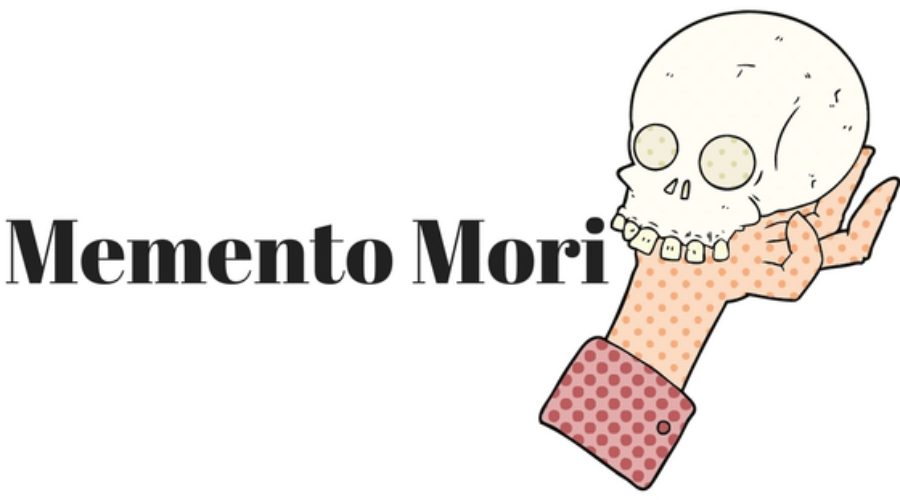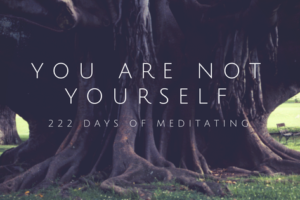Memento Mori: True Mindfulness
The literal translation of Memento Mori is “remember death”. I’ve been looking into a lot of stoic philosophers as of late. This is because many of the authors that I follow have been hot on the topic recently. Please note that I have a history degree in which ancient Greek and Roman History was my specialty (forgive a moment of snootiness). That said, I dig it when people that I follow are digging on stuff I already liked.

Stoic Philosophy
Ryan Holiday in particular, author of “Ego is the Enemy” and “The Obstacle is the Way” has taken to stoic philosophy. He’s at the spearhead of bringing it back to the masses. He cites it in his work daily. He is the proprietor of “The Daily Stoic”. I think it has a great Facebook page. Many other authors have been following stoic philosophy as well, such as author Tim Ferriss. Tim has been delving more and more into the realm of stoic philosophy. He recently put out (free and available on his blog) “The Tao of Seneca”.
One of the many gems to be had out of stoic philosophy is this idea of “memento mori”. Once again it’s literal translation is “remember death”. This sounds quite grim; in reality though it is not. It is quite the opposite. Memento mori falls in with all the other works on personal development that I have read, listened to, or written myself.
The idea of memento mori is that you should think on your mortality. This does not mean obsess. It does not mean that you need to light candles and write dark poetry or dress in black (though if that’s your thing have at it). What it means is that you should remind yourself of the fact that each day is a new gift. Right now is the only guarantee you have.
A second from now you may keel over. That tree might fall over on you. You might trip and a bus might hit you. Okay…okay, it is sliding to the side of grim, but that is not its intention. Fixating on the future that you cannot predict is wasteful. The same goes for fixating on a past event that you cannot change.
Does this mean the past is a waste? No of course not. The past is the past and we should learn from it. If you don’t learn from it you are doomed to repeat it so the saying goes. Assuming you do learn from it though, fixating on it cannot change it.
Does this mean that my goals are pointless if fixating on the future is a waste? Again of course not. Your goals are important (if they are good goals). Your clear vision of these goals is important. That said, no one ever got to their goal by thinking about it alone. It takes consistent measurable action NOW in order to get to the end goal. Having a goal is fine, but worrying about things that you cannot affect is wasteful.
This leaves the aforementioned ‘NOW’. Now is the only guaranteed time you have. It is the only time that matters. Memento mori is the knowledge that you will die, that your time has a limit and is not guaranteed. It is a catalyzer of action. It is an affirmation of work.
You cannot wait for the spark (though it is nice), you must do your work. From your work will spring the spark. Do your best work every time you try as you are not guaranteed a second shot. There is a big misconception that stoic philosophy is this stuffy dull nonsense when in fact it is quite the opposite. It is taking the waste out of your life. That which is truly not necessary gets removed. It is also placing purpose in your actions. Actions without purpose (even if they are full of passion) are impotent and wasteful.
I’m not saying that we can’t have a free day of relaxation either as these days are just as important as work days. What I am saying is that when you are relaxing, when you are working, when you are playing with your kids or spending time with a loved one “remember death” and actually be there in the moment. I am saying that the next time you skip your exercise, or put off that assignment, or that you’ll wait until next month to start that class or business that you should “remember death”. Our lives are over in a heartbeat. I’m not that religious so I believe in making the most out of what little time we have.
Stoic Misconceptions
Stoicism gets this bad rap as this bleak philosophy; an all work and no play mentality. We picture a Roman centurion bound by duty and carrying on for the sake of duty itself. While this image may have literal merit, I do not interpret stoicism in that way. I see it as a values alignment. Even a professional comedian can be a stoic with the right values. I mentioned purpose before. Stoicism is aligning yourself with purpose instead of passion. A stoic rules himself or herself through purpose. That isn’t to say that a stoic doesn’t have deep passions though. He or she is able to master those passions as opposed to letting their passions master them.
Each person is free to choose what is important to them. Everyone is capable of deciding what is truly necessary for them. The answer for one person may be completely different from someone else. Ours is not the place to judge what others’ values are. We need to align ours with purpose and stay in the moment. To stay in the moment we need memento mori.
Stoicism and Mindfulness Have Huge Similarities
If you are having trouble swallowing the idea of pondering your mortality, at the very least practice mindfulness. Find a moment each day and meditate. I recommend getting the Headspace App or the Calm App. I personally use both and just crossed the 180 day streak on the Headspace App. Hopefully I will continue to stretch this streak ad infinitum as I have incorporated it into my everyday life and see it as essential. Mindfulness is a way to center yourself on the now in much the same way as I have written.
The Daily Stoic has recently put out a neat little medallion. I have purchased one. On one side is artwork and on the backside is a quote, “You could leave life right now”.
The description of the medalion per the site is as follows:
“In Meditations Marcus Aurelius wrote “You could leave life right now. Let that determine what you do and say and think.” That was a personal reminder to continue living a life of virtue NOW, and not wait. The French painter Philippe de Champaigne expressed a similar sentiment in his painting “Still Life with a Skull,” which showed the three essentials of existence – the tulip (life), the skull (death), and the hourglass (time). The original painting is part of a genre referred to as Vanitas, a form of 17th century artwork featuring symbols of mortality which encourage reflection on the meaning and fleetingness of life.”
I like the idea of this medallion. It is useful and it aligns itself with mindfulness. I have kept a pocket watch with me at all times. When I reach into my pocket I can feel the watch and it is a mindfulness reminder. I will likely carry this coin from time to time and do the same. The pocket watch I playfully call my mindfulness totem, but it really is memento mori by another name. I recommend everyone place something in there work area that has the same effect. An object or reminder of some kind that says come back to the now.
Whatever you decide to do though, whether you can get into stoic philosophy or not, understand that having a positive grasp on your own mortal limitations can result in healthy benefits now. And the NOW is where we live. The NOW is when you have the opportunity to make the changes you desire. Think about memento mori. For this reason and many more take control of NOW.







